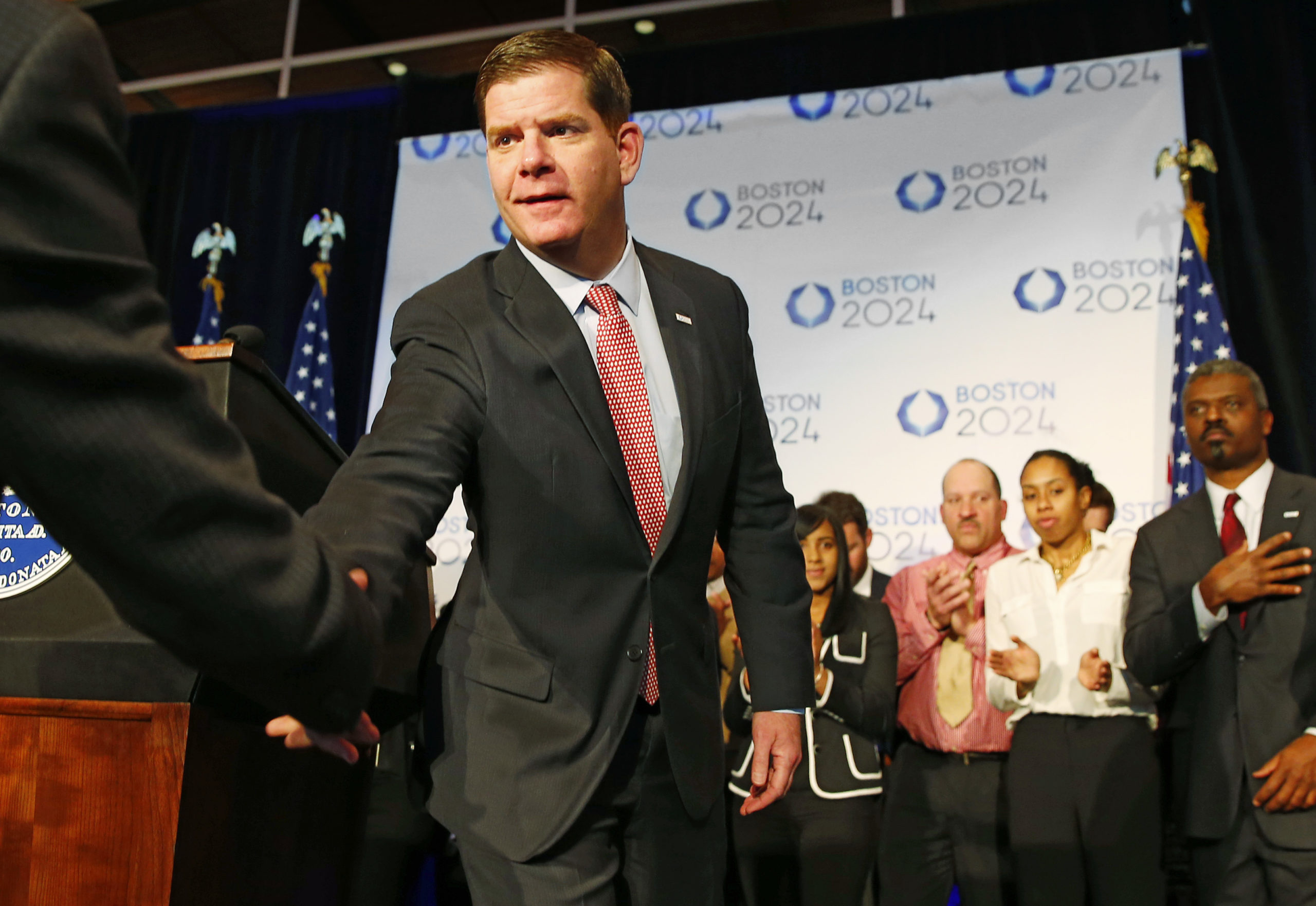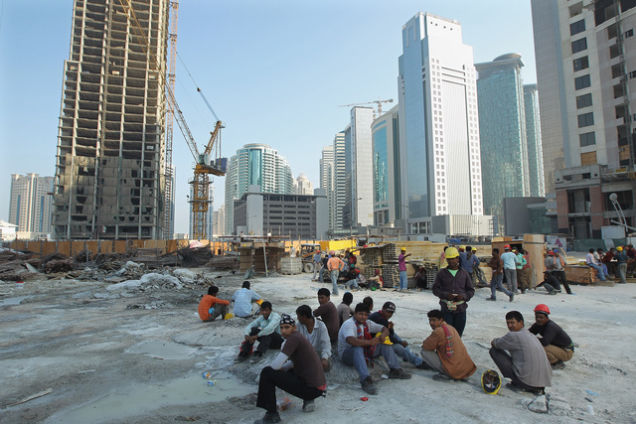Last week, the United States Olympic Committee chose Boston as tribute to bid for the 2024 Olympics. Many Bostonians were not super happy about it, and it’s easy to see why. The prospect of footing the bill for a $US4.5 billion party excites very few cities these days. Boston winning the games could be a major loss for the city — and it definitely won’t fix the bigger problem with the Olympics.
As Boston debates the value of its potential candidacy, the legacy of the games is shifting. Over the past two decades, the Olympics — once a concept that could excite whole cities — has become a byword for an elaborate urban racket that can bankrupt cities and leave behind vast, decaying pieces of specialised infrastructure that spur little of the dreamy development that traditional thinking on mega-sporting events has always promised.
With the 2024 games still far off, it’s tough to say exactly how well Boston would deal. It has a wealth of existing venues, from Harvard Stadium to Gillette home field, that will help. And Mayor Marty Walsh has
assured the city that “I will never leave Boston with a large price tag of an unpaid debt,” a promise he says he’ll keep by privately financing the majority of the $US4.5 billion budget and using insurance as a failsafe. But there’s a major caveat to his claim: The fact that, as the Chicago Tribune pointed out, host cities are contractually required by the IOC to assume “unlimited financial liability” for the cost of the games — no matter what.
“Massachusetts residents really don’t like taxation without representation,” says Victor Matheson, a professor at College of the Holy Cross in Worcester, Massachusetts, who specialises in the economics of mega-events like the Olympics and World Cup.
When I spoke to Matheson, he noted that most of Boston’s existing professional sports venues were privately financed, which sets a good precedent. At the same time, he added, “if either Boston is now expected to come up with millions of dollars of general infrastructure improvements, or to be the kind of backstop for cost over runs, then all of a sudden you’re talking about Boston citizens being expected to pay the IOC’s bills.”
And being stuck with a bill they didn’t vote on, historically, has not pleased Bostonians.

Mayor Marty Walsh. AP Photo/Winslow Townson
Boston’s bid committee plans to stay in the black by using existing venues sprinkled throughout its many college and university campuses. But it will still be on the hook for two extremely expensive pieces of infrastructure: A stadium and an Olympic swimming venue. The city has said it plans to build a “temporary” stadium, one that can be disassembled and moved or downsized after the games are gone, “sustainably.”
But even that idea holds hidden costs. “It can easily be the case that building a temporary facility can be every bit as expensive as building it in the first place,” says Matheson. “Conversion can also be horrifically expensive.” Converting London’s former Olympic stadium into a home venue for West Ham, for example, has been an
insanely slow and expensive process.
Boston’s plan to build a temporary stadium that can be taken apart and repurposed provides zero guarantee that it would actually be cheaper — it’s more like lip service to attractive ideas like sustainability and adaptive reuse.
The Authoritarian Games
It feels strange to call this the good news, but it is: Boston’s chances of winning the bid are probably slim for a number of reasons, including the fact that it’s wouldn’t be nearly as lucrative for the IOC versus other locations due to an American law that allows the US Olympic Committee to retain licensing rights over the Olympic name.
We’ll have to wait to see if the IOC is willing to forgo that revenue to bring the Olympics back to the US, but they have reason to consider it. Beyond America, more and more, countries are reassessing the value of hosting mega-events. And a new, troubling pattern is emerging.

Migrant workers near a hotel under construction in Zhangjiakou, which would be the site for Nordic events if Beijing hosts the 2022 Olympics. AP Photo/Ng Han Guan.
“The IOC is terrified by what has gone on with the winter Olympics,” says Matheson, referring to the $US51 billion price tag of Sochi, which was more than the cost of every other winter Olympics in history combined. After the Sochi debacle, embarrassing news that every single potential host city for the 2022 Winter Olympics had dropped out of the running, mostly after the public had voted against the cost, with the exception of two non-democratic bidders: China and Kazakhstan.
Of course, Boston has infrastructure and existing venues; its estimated budget, while likely unrealistically low, will never boom anywhere near Sochi’s outrageous budget, most of which was probably stolen or lost to fraud. But $US4.5 billion is still a huge sum for any city, especially a democratically-governed one. Which is why so many cities have dropped out of the running after public votes, leaving dictatorships as the most viable candidates.
“It’s easy for China’s leaders to spend the money, and it’s easy for Kazakhstan to spend the money,” Matheson adds. “It’s increasingly difficult to get regular taxpayers who have a say to put out that sort of money.”

Migrant workers in Qatar. Image: Sean Gallup/AP
The Olympics and other mega-events are shifting towards becoming the realm of dictatorships that are willing to put up the money — and labour — to host them, far from the democratic ideals of the original Olympics. And the IOC is beginning to panic. “I think they’re terrified that you could be in a situation where the only countries you can host a big event are dictatorships and autocratic governments,” says Matheson.
So in December, the IOC announced a huge set of new rules designed to supposedly decrease the cost of bidding to host the games, by rewarding cities with sustainable bids and “green” proposals. The new regulations seem like a step in the right direction, but Matheson is careful to point out that the IOC still hasn’t actually put its money where its mouth is. To prove that it’s serious about fixing its broken system, he says, the IOC simply has to pick an austere bid rather than a pricey one. “All you need is a Barcelona to bid again, or an LA to bid again, and say ‘hey, we’re gonna use the Rose Bowl and the Coliseum. They will be 100 years old by the time we use them, but they’re good enough.’”
When the IOC picks a bid like that, it will show it’s serious about stopping the Olympic’s slow slide into the arms of authoritarian governments with unlimited budgets. But it hasn’t.
Meanwhile, by picking Boston as the U.S. bidder, the U.S. Olympic Committee has chosen a fairly rational plan that relies, in large part, on existing infrastructure. While LA probably would have been even more austere, Boston’s pitch relies on the fact that it has the infrastructure — who knew the Big Dig would ever be a selling point? — and the space to host the games without pulling a Sochi. Whether the IOC can identify the sense in that remains to be seen.
Can The Olympics Be Fixed?
The debate over the absurdity of the modern Olympics — and the World Cup, too — reached a boiling point over the last year: Sochi’s outrageous cost. Tokyo’s ongoing public outcry against a massive and unnecessary new Olympic stadium. Qatar’s appalling human rights abuses against the migrant workers building its many new stadiums.
Everything fantastic about the games — and there is a lot fantastic about them — has been overshadowed by the economic sham being sold to cities and citizens and workers around the world. And so some critics are arguing it’s time for a great culling; a total transformation of the way the Olympics are hosted.
In 2013, a public policy professor named John Rennie Short proposed that the IOC buy and transform an island into a permanent seat for the Olympics. “The poor get screwed to host the Olympic games, because they often get displaced,” Short told Nate Berg in Citylab. “Up to half a million people were displaced for the Beijing Olympics. Why do we keep doing that when we could find a place that doesn’t require any displacement?” Writing in Salon last year, Alex Pareene made a similar suggestion: “It makes absolutely no sense to build brand-new Olympic sporting venues in completely different places every four years,” he wrote. “Let’s just pick two host countries, have them build permanent venues, and let them host all the Olympics.”
Matheson brings up another alternative: Doubling up on hosting duties. So, if Boston won the right to host the 2024 summer games, it would also host the 2028 summer games. It would be a way to give cities “two bites of the apple,” he says, a double helping of the very fleeting economic development spurred by one three-week event. Still other critics argue that a small group of cities, already outfitted to host the games, should be on a rotating schedule.
But these are armchair theories — no one can fix the broken Olympics except the IOC. And the IOC is a hugely powerful corporation whose profit margins are increasing every year thanks to lucrative licensing and broadcast deals. It’s a very health business hidden behind a non-profit label that, ridiculously, is predicated on bringing “development” and promoting the Olympic spirit in a new city every two years while often wreaking havoc upon them. Until that business model stops being profitable, all of these arguments are just bad press.
For now, all we can hope for is that the IOC will pass over Boston for 2024 — or that, if it does get picked, the city will stand up to the demands of the committee. At the very least, it’s got a great history of telling empire to fuck off.
Lead image: AP Photo/Michael Dwyer
